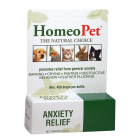
As devoted dog owners, we understand the unconditional love and joy our furry friends bring into our lives. Sadly, just like humans, dogs can also experience age-related cognitive decline, commonly known as dementia. Witnessing our loyal companions struggle with dementia can be heartbreaking, but with awareness and understanding, we can provide them with the care and support they need. In this article, we will explore what dementia in dogs is, how it occurs, when it strikes, breeds more susceptible to it, symptoms to watch for, prevention measures, and available treatments.
What is Dementia in Dogs?
Dementia, also referred to as canine cognitive dysfunction (CCD), is a progressive degenerative disorder that affects a dog's cognitive abilities. It is similar to Alzheimer's disease in humans, leading to memory loss, disorientation, and behavioral changes in our beloved pets. While the exact cause is unknown, it is believed to be a result of brain aging and the accumulation of abnormal proteins.
How Do Dogs Get Dementia?
Dementia in dogs typically develops due to the natural aging process. As dogs grow older, their brain cells begin to deteriorate, leading to cognitive decline. Additionally, genetics, environmental factors, and certain medical conditions may contribute to the onset of dementia. While it can affect any dog breed, certain breeds have been found to be more susceptible.
When Does Dementia Strike?
Dementia can occur in dogs around the age of seven or eight, but it is more commonly observed in senior dogs, usually over the age of ten. However, every dog is unique, and the onset of dementia may vary. Early detection is crucial for managing the condition effectively and improving the quality of life for our four-legged friends.
Breeds More Susceptible to Dementia
While dementia can affect any breed, some dog breeds have shown a higher predisposition to cognitive decline.
These breeds include but are not limited to:
- Cavalier King Charles Spaniel
- Pug
- Yorkshire Terrier
- Beagle
- Boxer

Symptoms of Dementia in Dogs
Recognizing the signs of dementia in dogs is crucial for early intervention. Some common symptoms include:
- Disorientation and confusion, especially in familiar surroundings.
- Changes in sleep patterns, such as restlessness at night and excessive daytime napping.
- Loss of housetraining skills, leading to accidents indoors.
- Altered social behavior, including increased irritability, decreased interaction, and separation anxiety.
- Loss of appetite or changes in eating habits.
- Excessive pacing, aimless wandering, or getting stuck in corners.
- Decreased responsiveness to commands and cues.
Prevention of Dementia
While we cannot entirely prevent dementia in dogs, there are measures we can take to promote healthy brain function and potentially delay the onset of cognitive decline.
Consider the following prevention tips:
- Provide a balanced diet rich in antioxidants, omega-3 fatty acids, and essential nutrients.
- Engage your dog in mentally stimulating activities, such as puzzle toys and obedience training.
- Regular exercise to maintain physical and mental well-being.
- Maintain a consistent routine and avoid abrupt changes that may cause stress.
- Regular veterinary check-ups to monitor your dog's overall health.

Treatment Options for Canine Dementia
If your dog is diagnosed with dementia, there are various treatment options available to help manage the condition and improve their quality of life.
These may include:
- Medications prescribed by your veterinarian to reduce anxiety, improve cognitive function, and alleviate behavioral symptoms.
- Dietary supplements designed to support brain health and cognitive function.
- Environmental modifications to create a safe and comfortable living space for your dog.
- Behavioral therapy to address anxiety, confusion, and aggression.
- Unconditional love, patience, and consistent care from you as their dedicated owner.
Dementia in dogs can be a challenging and emotional journey for both our pets and ourselves. By familiarizing ourselves with the signs and symptoms, we can intervene early, seek appropriate treatment, and provide the support our furry friends need. Remember, the key to managing dementia in dogs lies in compassion, understanding, and a commitment to their well-being. Together, we can ensure their twilight years are filled with love, comfort, and cherished memories.
Summary:
- Dementia in dogs is a progressive degenerative disorder that affects their cognitive abilities.
- It is believed to be a result of brain aging and the accumulation of abnormal proteins.
- Dementia is more commonly observed in senior dogs, typically over the age of ten.
- Certain breeds, such as Cavalier King Charles Spaniels and Pugs, are more susceptible.
- Symptoms include disorientation, changes in sleep patterns, loss of housetraining skills, altered social behavior, and decreased responsiveness.
- While prevention is not guaranteed, a balanced diet, mental stimulation, regular exercise, and consistent routines can promote brain health.
- Treatment options include medications, dietary supplements, environmental modifications, and behavioral therapy.
- Providing love, patience, and dedicated care is essential throughout the journey of canine dementia.


